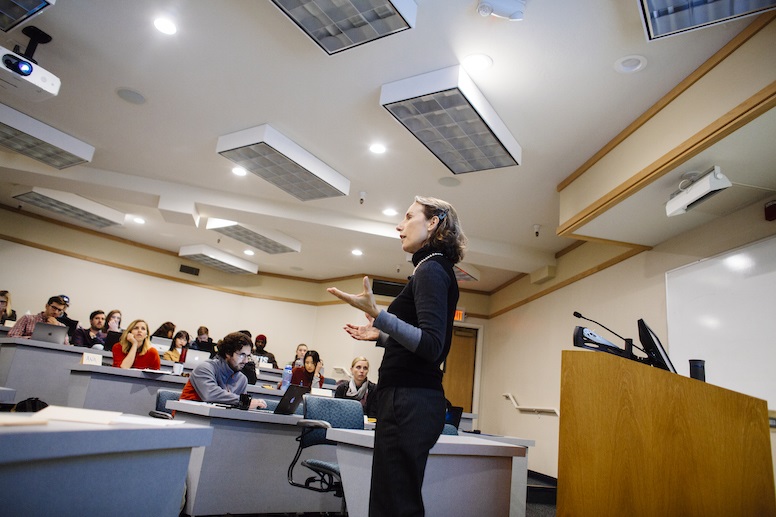CTEC Expert and MIIS Professor Moyara Ruehsen Explains How TV and Movies Get Money Laundering Right (And Wrong)
| by Alex Newhouse
New technologies are creating new challenges—and new job opportunities for early career professionals.
Professor Moyara Ruehsen recently shared her perspective on how the field is shifting, and the skills that will be most important to build, in a special section that appeared in Foreign Affairs in fall 2023.
How are new technologies changing the global security field?
There’s a lot of excitement around AI and how it can enhance how governments and private sector compliance professionals detect criminal activity like financial sanctions evasion and cross-border smuggling. We’ve already seen machine learning on a small scale be used to great effect in the past several years by the largest financial institutions and fintech companies to detect suspicious transactions.
“Older” technologies like blockchain forensics haven’t gone away either. Criminals may not be using Bitcoin as often as they did, but we have the technology to track what they’re doing on other blockchains.
More criminal activity is migrating online and being conducted with alternative communication methods and payment methods. We need to stay on top of these techniques.
Beyond my field of financial crime, my colleagues have been using open-source tools to monitor extremist group hate speech, and satellite imagery to monitor shipping traffic and nuclear weapons facilities. We live in an exciting new world, where it’s easy to access and implement these investigative tools.
How is this shifting power dynamics? What do you see as the peril and the promise of these new technologies?
With the advent of ChatGPT and digitally manipulated voice and video, we’re starting to see what AI is capable of. Just as AI can help the good guys, it can also be abused by the bad guys. I worry about what awaits us once criminals and rogue states master their own AI capabilities.
How is this reflected in what you teach and how you teach it?
No one can single-handedly keep up with all of these new technologies—we rely on a team of professional practitioners who teach these cutting-edge techniques. Even in my own courses, I have to constantly adapt. For example, five years ago I began teaching a course called Cyber-Enabled Financial Crime. Now most financial crime is cyber-enabled, defined broadly. The cases I used in that course are now part of my introductory Typologies course.

What skills are most critical for students to build so they can understand and address emerging threats in a fast-changing global environment?
Traditional communication skills, including written and spoken communication, cross-cultural communication, and foreign language skills, will always be important, especially because many threats are transnational and require close collaboration with foreign counterparts. Language translation technology is no substitute for building interpersonal cross-cultural relationships.
Blockchain forensics for tracing crypto assets is another exciting development. We train our financial crime students in advanced blockchain analytics techniques and how to use public tools that highlight the flow of funds and recognize patterns.
Other critical skills include data analytics, which is getting more sophisticated. Coding classes like Python and SQL are becoming standard components of data analytics curricula. We live in a world of big data, which is coming at us like a fire hose. Even if you have no interest in data analysis, data wrangling is in your future.
What do you see on the horizon? Where do you see emerging needs and opportunities for people entering this field in the coming years?
While it’s entertaining to watch movie characters like James Bond and Jack Ryan and their high-speed car chases, most of the exciting work in the international security space will be done from behind a computer. And while there will always be a need for digital skills within federal agencies, law enforcement, and the military, there is also a need for these skills in the private sector. It’s a growth industry!
| by Alex Newhouse
| by Jessie Raymond
Noting the high demand for financial crime experts at all levels, Professor Moyara Ruehsen, head of the Institute’s Financial Crime Management program, expanded her teaching to the undergraduate level this spring with a special Middlebury College course.
| by Jason Warburg
Financial Crime Management program head Professor Moyara Ruehsen serves on an international task force aimed at combating money laundering and other illicit methods of financing crime, terrorism, and weapons proliferation.